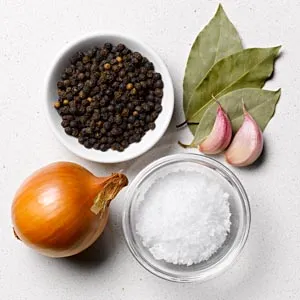When I
was a little girl growing up in Puerto Rico, I used to confuse and
often think that ceviche and escabeche were
the same things. It may have been that last –che syllable.
It may have been the fact that both dishes often included fish…
Back
then I had a love/hate relationship with fish. I
hated bacalao (salted cod), and I especially hated
when they made the whole fish and served it with its tiny mouth half
open, its tiny little teeth still slightly menacing and the dead
eye staring at you from the big platter.
I used
to eat the eyes because I thought it was funny, and it grossed out my grandmother -- but what I really hated was the
other stuff on the platter (and that usually meant a variety of over
boiled vegetables that had been overcooked together and both smelled
and tasted exactly the same: overcooked).
I grew
to hate the poor fish too. It smelled, it was too fishy...
My
antipathy for the dish grew as my grandfather and I emotionally
distanced from each other. I lost my stomach for his favorite dish
just as he became ever more disappointing a parent and human being.
I
outgrew my culinary prejudices eventually. I also learned the
difference between one dish and the other.
Ceviche is
all the rage now that Anglos have “discovered” it. The dish
originates from Peru, is popular in coastal regions in Latin American
and the Caribbean (passed along each colony by Spaniards). It
consists of marinating raw fish in a citrus juice base and spicy heat
of chilis and letting it “cook” in the juices. It requires fresh
fish, and it is generally made shortly before it is served. It is
served cold or at room temperature.
Escabeche is
another thing altogether, and a lot more fun because it is a flexible
recipe. It originated in Spain under the influence of the Moops (it’s
a Seinfeld reference, live with it!).
When I
was a kid it generally meant fish, chicken, or sliced tiny green
bananas that were served cold from a giant jar in which they pickled
in a delicious sauce. This was served over white rice or
alongside vegetables, usually boiled tubers and pumpkin.
The
short version is simply this: you start with poached or fried fish,
and marinade overnight in an acidic base (oil and vinegar usually,
some use watered-down and spiced vinegar), onions, peppers and herbs.
In
Puerto Rico, escabeche is also made with chicken
gizzards and green bananas. In Mexico, the sauce is made with chiles
(pick your heat level and go wild), and served over rice, in soups,
over meats and fish, with tamales…
The
result is a savory, tangy sauce with mild sweetness (usually from the
onions), and heat (from peppers), and a complex combination of
flavors and textures that is both light and yet filling.
To make
up for leaving you foodless for three weeks, I will run
a few escabeche recipes in this space starting tomorrow, so come back.
Thanks for sticking with me!
UPDATE: If you enjoyed this article and the recipes in it, you can link to its companion piece, a dedicated Pinterest board you can refer to any time.




No comments:
Post a Comment